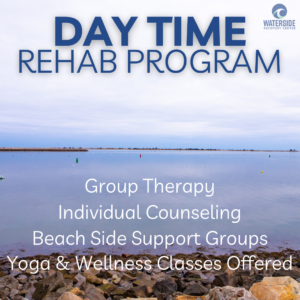Creating a Successful Aftercare Plan: Life After Rehab
Life after rehab can be a challenging and overwhelming experience for those who have completed addiction treatment. While rehab provides a structured environment for recovery, returning to everyday life can be a trigger for relapse. Creating a successful aftercare plan is crucial to maintaining sobriety and preventing relapse.
An aftercare plan is a personalized plan that outlines the steps an individual will take after completing rehab to maintain their recovery. It includes ongoing support, therapy, and resources to help them stay on track. The plan should be tailored to the individual’s needs, taking into account their unique circumstances, triggers, and challenges. A successful aftercare plan can help individuals navigate the challenges of life after rehab and support them in achieving long-term recovery.
Understanding Aftercare
Defining Aftercare
Aftercare refers to the ongoing support and treatment that a person receives after completing a rehab program. It is an essential part of the recovery process as it helps individuals maintain their sobriety and prevent relapse. Aftercare can take many forms, including therapy, support groups, and medication management.
The Role of Aftercare in Recovery
Aftercare plays a crucial role in the recovery process as it provides individuals with the necessary tools and resources to maintain their sobriety and prevent relapse. It helps individuals address any underlying issues that may have contributed to their addiction and provides ongoing support to help them cope with life’s challenges.
Aftercare can also help individuals develop healthy coping mechanisms and improve their overall quality of life. It provides a safe and supportive environment where individuals can share their experiences and receive guidance and encouragement from others who have been through similar struggles.
Overall, aftercare is an essential component of the recovery process, and individuals who participate in aftercare programs are more likely to maintain their sobriety and achieve long-term success in their recovery journey.
Components of a Successful Aftercare Plan
After completing rehab, it is crucial to have an aftercare plan in place to continue the progress made during treatment. A successful aftercare plan should include the following components:
Continued Therapy and Counseling
Continued therapy and counseling are essential components of a successful aftercare plan. It is important for individuals to continue working with a therapist or counselor to address any underlying issues that may have contributed to their addiction. This can include individual therapy, group therapy, or family therapy.
Support Systems
Having a strong support system is crucial for maintaining sobriety after rehab. This can include friends, family, support groups, and sponsors. It is important for individuals to have people in their lives who understand their struggles and can provide encouragement and accountability. Additionally, participation in AA or NA groups will help foster a community in recovery.
Healthy Lifestyle Choices
Maintaining a healthy lifestyle is an important part of a successful aftercare plan. This can include regular exercise, a balanced diet, and getting enough sleep. It is also important to avoid triggers and situations that may lead to relapse.
Ongoing Education and Skill Development
Continuing education and skill development can help individuals build a successful and fulfilling life after rehab. This can include pursuing higher education or learning a new skill or hobby. It is important for individuals to have a sense of purpose and direction in their lives.
By incorporating these components into their aftercare plan, individuals can increase their chances of maintaining sobriety and achieving long-term success in their recovery journey.
Implementing the Aftercare Plan
Once a comprehensive aftercare plan has been created, it is essential to implement it effectively. This section will discuss some key steps to take when implementing an aftercare plan.
Setting Realistic Goals
The first step in implementing an aftercare plan is to set realistic goals. These goals should be specific, measurable, achievable, relevant, and time-bound. It is important to work with the individual and their support system to develop goals that are meaningful and achievable.
Establishing a Routine
Establishing a routine is also key to successfully implementing an aftercare plan. This routine should include time for self-care, such as exercise, healthy eating, and getting enough sleep. It should also include time for therapy, support group meetings, and other activities that are part of the aftercare plan.
Monitoring Progress and Adjusting as Needed
Finally, it is important to monitor progress and adjust the aftercare plan as needed. This may involve regular check-ins with the individual and their support system to assess progress and identify any challenges. It may also involve adjusting the aftercare plan as needed to ensure that it remains effective and relevant.
By following these steps, individuals can successfully implement their aftercare plan and continue on the path to recovery.
Challenges and Solutions
Common Post-Rehab Obstacles
Life after rehab can be full of challenges, and it’s essential to be aware of some of the most common obstacles that individuals in recovery may face. One of the most significant challenges is the temptation to relapse, which can be triggered by stress, anxiety, or exposure to triggers. Another common obstacle is the difficulty of adjusting to a new routine and lifestyle, especially if the individual has to return to an environment that is not supportive of their recovery.
Strategies for Overcoming Challenges
To overcome these challenges, individuals in recovery need to develop a strong aftercare plan that includes effective strategies and coping mechanisms. One of the most effective strategies is to identify and avoid triggers that may lead to relapse. This may involve avoiding certain people, places, or situations that may trigger cravings or negative emotions. Another strategy is to develop a strong support system, which may include family, friends, or support groups.
When to Seek Additional Help
Despite their best efforts, individuals in recovery may still face challenges that they cannot overcome on their own. In such cases, it’s essential to seek additional help from a healthcare professional or a support group. Some signs that may indicate the need for additional help include persistent cravings, feelings of hopelessness, or a lack of progress in recovery.
In summary, life after rehab can be challenging, but with the right strategies and support, individuals in recovery can overcome obstacles and achieve long-term success. By identifying common obstacles, developing effective coping mechanisms, and seeking additional help when necessary, individuals can create a successful aftercare plan that will help them maintain their sobriety and improve their overall quality of life.
At Waterside Recovery Centers we pride ourselves on providing the top addiction treatment in Massachusetts. With a range of evidence-based, client-focused and individualized treatment offerings, we are able to provide the ideal support for those seeking recovery from substance addiction. Please feel free to reach out to our help line at anytime.
(866)671-8620





